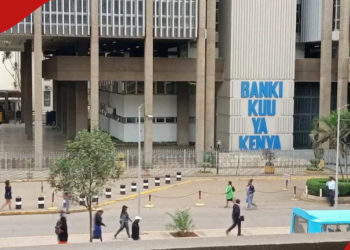Kenyan investors have overwhelmingly rejected the latest government bond offering, with the subscription rate falling to a mere 2.4%.
The Central Bank of Kenya (CBK) reported that the tap sale issue for the FXD1/2023/002 bond received bids worth only KES 0.488 billion against the offered KES 20.0 billion.
The 1.2-year bond, carrying a fixed coupon rate of 17.0%, failed to attract significant interest despite offering a real return of 12.5% based on the current inflation rate of 4.6%.
The government accepted nearly all bids, with an acceptance rate of 99.8%, totaling KES 0.486 billion.
This poor performance contrasts sharply with the Treasury bill market, which saw its first oversubscription in four weeks. The overall subscription rate for T-bills reached 124.4%, a significant improvement from the previous week’s 32.0% undersubscription.
Investors showed a strong preference for the 91-day T-bill, which was oversubscribed by 370.1%. The 182-day and 364-day papers also saw increased interest, with subscription rates of 94.2% and 56.3% respectively.
The government accepted KES 27.9 billion out of the KES 29.9 billion bids received for T-bills, representing an acceptance rate of 93.4%. Yields on all T-bill tenors increased slightly, with the 364-day paper rising to 16.83%, the 182-day to 16.80%, and the 91-day to 15.99%.
The stark difference in performance between the bond and T-bills suggests that investors are currently favoring shorter-term government securities, possibly due to uncertainties in the long-term economic outlook or expectations of further interest rate changes.
This development poses challenges for the Kenyan government’s debt management strategy, as it may need to reassess its approach to longer-term borrowing in the domestic market. The low subscription rate for the bond could potentially lead to higher borrowing costs in future issuances if the trend continues.


















